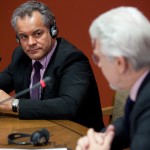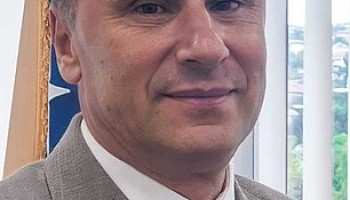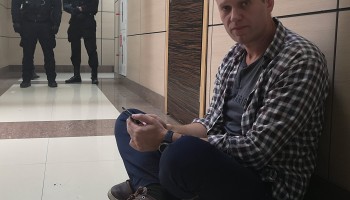According to the U.S. Department of the Treasury, the Russian government has, for years now, embarked on a “global influence campaign,” which includes the destabilization of the small eastern European country and former Soviet republic in order to further its own interests.
“Russian influence operations attempt to exploit weaknesses in target countries in order to destabilize them from within,” said Brian E. Nelson, Under Secretary of the Treasury for Terrorism and Financial Intelligence. His comments refer to accusations that Russia has gone so far as to weaponize corruption by supporting “influence agents” in countries of interest to them.
Moldova, which shares a border with Ukraine, applied for European Union membership in March this year, exactly one week after Russia invaded Ukraine.
One of the primary explanations behind Russia’s invasive tactics is the fact that, since the turn of the 21st century, many of its former Soviet partners have sought stronger ties with the West. The subversion of democracy via corruption is seen as but one tool in the Kremlin’s arsenal used to keep its neighbors in line with its own agenda.
One such example of the subversion of Moldovan democracy via ‘weaponized corruption’ involves former government official Vladimir Plahotniuc, who “engaged in state capture by exerting control over and manipulating key sectors of Moldova’s government,” as well as its police, electoral, and judicial sectors, the Treasury said.
Moldovan President Maia Sandu commented on her Facebook page that Plahotniuc “used the money from corruption and influenced politics to eliminate political rivals and to subordinate justice in the country.”
Plahotniuc, who served as both de facto leader and elected chair of the Democratic Party of Moldova (PDM), directed the country’s law enforcement to investigate his political rivals ahead of the 2018 election and also bribed police officials so as “maintain their loyalty and further cement his control over Moldova,” according to American authorities.
He has further been accused of corrupting the country’s judicial system to invalidate the June 2018 mayoral election in Chisinau, and also of closing voting stations “in areas where his party was not expected to do well,” the Treasury said.
This state capture has, in part, been accomplished via Plahotniuc’s control over the Moldovan media, which allows him to keep the spotlight over his political opponents while shielding himself and his allies from scrutiny, according to the sanction order.
Another person targeted is the exiled politician Ilan Mironovich Shor, who is chairman of the populist Shor Party. Shor was previously arrested for money laundering and embezzlement, in connection to the 2014 theft of US$1 billion from Moldovan banks.
Shor has been named as a figure responsible for coordinating political unrest in Moldova earlier this year, with the Kremlin’s support. He also coordinated with Moscow to undermine Moldova’s EU membership bid in June, according to the U.S. government statement.
“In advance of the 2021 Moldovan elections,” the Treasury said, “Russia planned to undermine Moldovan president Maia Sandu and return Moldova to Russia's sphere of influence.” This was to be accomplished by using Shor to establish a political alliance that would assume majority control over parliament and then work to enact “several pieces of legislation in the interests of the Russian Federation.”
All together, 21 individuals and entities were named in the newest wave of sanctions against Russia’s efforts to subvert democracy around the world.
These include the son of a member of Russia’s Security Council who sought to undermine Sandu’s administration; a former Russian Federal Security Service (FSB) officer who coordinated efforts to influence the outcome of Moldova’s 2021 elections; and an FSB associate who utilized propaganda to dissuade pro-European members of the Moldovan electorate from voting, while encouraging pro-Russian voters to cast their ballots.
“I thank all those who contributed to sanction the corrupt,” Sandu said, who expressed her hope that it would grant justice upon those who subverted the integrity of Moldova’s political and judicial institutions, as well as its aspirations for EU membership.






